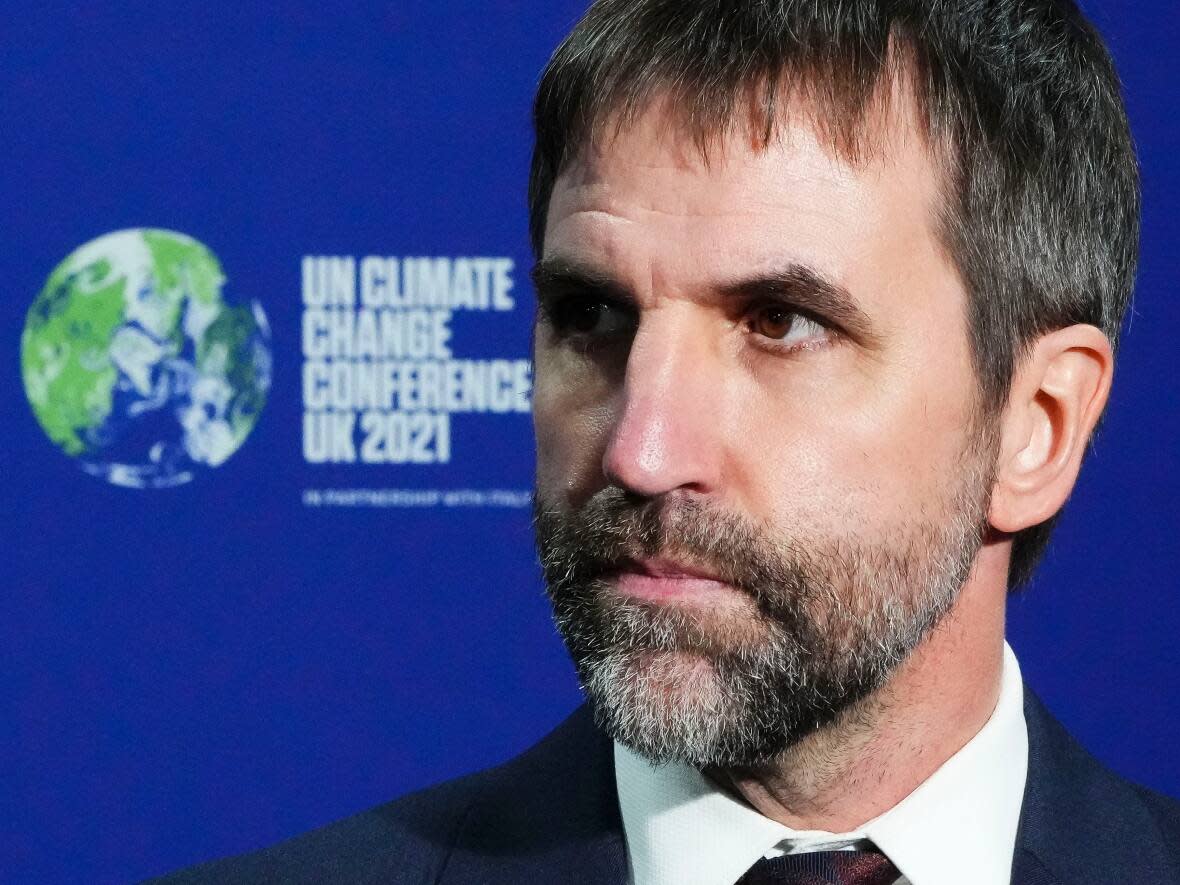Federal minister says carbon pricing doesn't have to create hardships for N.S.

Canada's environment minister says he's disappointed by a request from his counterpart in Nova Scotia to "stall" on carbon pollution pricing.
Steven Guilbeault was responding a week after Nova Scotia Environment Minister Tim Halman revealed that he wrote to the federal minister in July to say the provincial government does not believe this is the right time to bring in a federal carbon tax.
In a statement to CBC News, Guilbeault said the provincial government has every opportunity to design a pollution pricing system that returns the revenues directly back to Nova Scotians.
"This is how the federal system is designed, with eight out of 10 families getting more back than they paid," he said.
Since 2019, provinces have been required by Ottawa to put a price on carbon. A federal carbon tax was imposed on provinces that could not — or would not — come up with their own system.
Nova Scotia has used a locally designed cap-and-trade system for large emitters, but with an update due next month on how the province will handle increased federal requirements beginning in 2023, there has been little information from the Tory government about what they will do.
Pricing pollution is simply the right thing to do
Halman's letter to Ottawa and subsequent framing of the issue at the legislature indicated that the federal carbon tax would add about 14 cents to a litre of gas beginning next year at a time when people cannot shoulder the additional cost.
The current cap-and-trade system only increased prices in the province by about one cent compared to what other provinces experienced, but that won't hold up with incoming federal requirements that will increase year over year until 2030.
Guilbeault dismissed Halman's argument that pricing carbon during times of high inflation is unfair.
"The bottom line is pricing pollution can at once combat climate change and support families with affordability issues," he said. "And pricing pollution is simply the right thing to do, especially in the current environmental context."
Provincial government documents obtained by CBC News and AllNovaScotia.com in June show that although the federal tax would increase the price of gas and electricity, it would also generate about $1 billion for Nova Scotia, which the government could use to offset cost-of-living increases. The documents provide more information than the current or previous government have shared with Nova Scotians about potential options and their implications.
In his statement, Guilbeault notes that other provinces that have the federal tax were able to send money back to their residents.
Ways to offset carbon tax effects
According to Guibeault, in 2022-23, a family of four will received $745 in Ontario, $832 in Manitoba, $1,101 in Saskatchewan and $1,079 in Alberta. The federal system also has special provisions for rural Canadians and farmers, he said.
Guibeault said if anything is driving up the price of gas, it's industry.
"The fact is refining margins on gasoline in Canada are up more than 113 per cent between June 2019 and June 2022, and oil and gas companies are experiencing record cash flows. The high cost of gas has more to do with getting [gouged] at the pump, than with carbon pricing."
Before last week, the Tories had said little about their plans for pricing carbon since coming to power a year ago. The issue in Nova Scotia has largely avoided the political rhetoric that it's taken on in other provinces, but that appears to be changing.
Emerging political issue
Members of the government have accused the opposition of being in favour of increased gas prices if they are unwilling to speak against a federal carbon tax. The Tories have instead pitched increased support for green technology, clean energy and an updated power grid as ways of reducing greenhouse gas emissions.
On Tuesday at Province House, Halman read a resolution calling for all-party support against a federal carbon tax without debate. At least one member of the NDP voted against that, believing the issue merited debate. Moments later, the government issued a news release accusing the NDP and the Liberals of not standing up for Nova Scotians. Derek Mombourquette, the Liberal House leader, quickly stood in the House to say that, in fact, his party supported the resolution.
Guibeault's statement addresses the emerging political undertones of the issue in the province, while using some of his own.
"Climate change is the crisis that will be with us for a long time. Pricing pollution should not be the political issue that many Conservative politicians want it to be — not when anti-pollution policies can be used to both support families with the cost of living and push heavy industries, like oil and gas, to clean up their act."
MORE TOP STORIES


